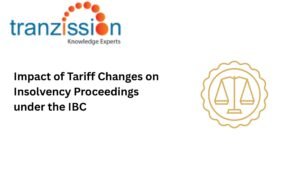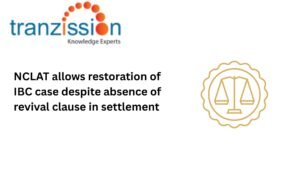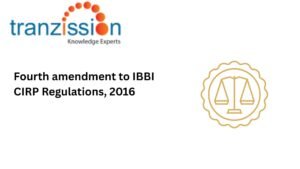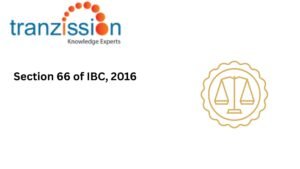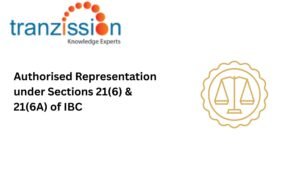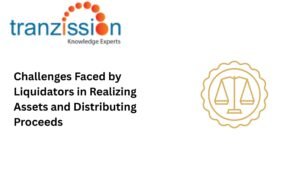
Link between section 230 of the Companies Act and IBC
Table of Contents
Link between section 230 of the Companies Act and IBC are important legislations that have a bearing on insolvency, restructuring, and other matters. Although the aims of both are different in their scope and processes, they are similar in their end goal, to restructure companies and avoid bankruptcy while balancing the interests of all stakeholders. For instance, a compromise or arrangement under section 230 of the Companies Act, 2013, and a resolution plan under the Insolvency and Bankruptcy Code, 2016 are formulated within the context of liquidation and have similar objectives and enforceability. This article delves into the interplay between section 230 of the Companies Act and Section 29A of the Insolvency and Bankruptcy Code, 2016.
Section 29A of IBC: Disqualification of Promoters
Section 29A of the Insolvency and Bankruptcy Code, 2016 (IBC) lists persons who are ineligible to be resolution applicants, for instance, a person or promoter who has an account of a corporate debtor under their control that is classified as a non-performing asset (NPA). This section was inserted by the Insolvency and Bankruptcy Code (Second Amendment) Act, 2018, and disqualifies promoters and certain connected parties from submitting the resolution plan in the resolution process. The main purpose for introducing this section is to prevent misuse of process and ensure ethical participation in corporate insolvency resolution proceedings (CIRP).
Read more : Importance of Public Announcement in the IBC Process
Section 230 of the Companies Act: Scheme of Compromise or Arrangement
Section 230 of the Companies Act, 2013 allows a company to propose a scheme of compromise or arrangement with its creditors and members. This enables the company to restructure its debts or make arrangements with stakeholders to potentially revive the company when facing financial duress, by seeking approval from the National Company Law Tribunal (NCLT).
The Harmonization Between Section 29A IBC and Section 230 Companies Act
Both the Companies Act, 2013 and the IBC provide for compromise or arrangement between a company and its creditors. Section 230 allows a company, its members, creditors, or liquidator to propose a compromise or arrangement. The IBC also provides for compromise or arrangement as a resolution method for a company’s insolvency. Through these sections and judicial precedents, this can be understood in more detail:
Legal Interplay:
Applications under section 230 of the Companies Act are filed with the NCLT, which is responsible for evaluating whether a proposed scheme complies with the provisions of the Companies Act and the IBC. Hence, section 230 must align with Section 29A’s objectives to ensure ethical practices and ineligibility under Section 29A applies even to schemes filed under Section 230.
Case Law Analysis:
The Honorable Supreme Court in Arun Kumar Jagatramka v. Jindal Steel and Power Ltd. held that the courts and tribunals will apply the restrictions of section 29A to anyone attempting to propose a scheme under section 230. This means that anyone disqualified under the IBC cannot use Section 230 as a backdoor to participate in a company’s restructuring. Hence, the court upheld that the integrity of the process under IBC must not be compromised.
Read more : Responsibilities do Valuation Experts have in the IBC process
Key Issues and Challenges
Conflict Between Revival and Disqualification:
Section 29A restricts certain individuals, including promoters, from submitting a resolution plan, which creates a balance between allowing revival attempts while safeguarding creditor rights by preventing potentially problematic promoters from taking control of the company. However, as section 230 of the Companies Act allows for a scheme of compromise or arrangement between a company and its creditors, it enables promoters to propose a plan to revive a company. Therefore, a conflict arises on focusing on the revival of the company or the ineligibility under section 29A.
Legal Ambiguities:
There is a lack of clear legislative guidelines on integrating these sections, which leads to operational challenges. The intent behind section 29A is to revive the company, not to debar honest promoters or management.
Stakeholder Interests:
The strict application of this link could potentially disadvantage creditors who might prefer a scheme proposed by the existing management under section 230, even if the promoter under section 29A can be complex, leading to potential litigation.
Implications for Insolvency Professionals and Aspirants
The link between section 230 of the Companies Act and section 29A of IBC means that insolvency professionals need to carefully consider whether persons who are deemed ineligible to submit a resolution plan under section 29A can also not propose a scheme under section 230, especially if the company is already undergoing liquidation proceedings under IBC. Their main role as an insolvency professional is to effectively prevent them from using Section 230 as a backdoor to regain control of the company. Insolvency professionals and aspirants need to know the interplay to enhance the ability to advise stakeholders effectively and the possible outcomes during the insolvency proceedings due to the link between these provisions.
Recent Developments and Case Studies
Jurisprudence on Section 29A, IBC and Section 230, Companies Act, 2013: In
Arun Kumar Jagatramka v. Jindal Steel and Power Ltd., the Supreme Court ruled that the restrictions imposed under section 29A of the IBC, which aims to prevent unethical actors from taking control of a company during insolvency proceedings, also apply to proposals under section 230 of the Companies Act.
Practical Applications:
A prominent case of a company successfully restructured under section 230 of the Companies Act, 2013, while adhering to the restrictions of section 29A of the IBC is Arun Kumar Jagatramka v. Jindal Steel and Power Ltd. The Supreme Court held that individuals ineligible to submit a resolution plan under section 29A of the IBC are also ineligible to propose a scheme of compromise or arrangement under section 230 of the Companies Act when the company is undergoing liquidation under the IBC. Hence, in this case, the company was restructured under Section 230 without violating Section 29A.
Conclusion
Under section 29A of the IBC certain individuals, often promoters, are deemed ineligible to be resolution applicants due to their actions that contributed to the company’s insolvency, while Section 230 of the Companies Act, 2013 allows for a company to propose a ‘scheme of compromise or arrangement’ with its creditors, requiring the approval of the NCLT. The Supreme Court ruling has established harmonious construction between Section 29A of the IBC and Section 230 of the Companies Act ensuring ethical revival processes during liquidation. The rationale behind this interpretation is to prevent individuals who caused the company’s financial distress from using alternative mechanisms to regain control or benefit from the situation.
FAQs
i) Can disqualified promoters propose schemes under Section 230?
No, disqualified promoters under section 29A of the IBC, cannot propose schemes, such as compromises or arrangements, under section 230 of the Companies Act, 2013.
ii) What is the impact of this interplay on creditors?
This interplay provides creditors a mechanism under section 230 of the Companies Act for restructuring while ensuring that disqualified promoters under section 29A of the IBC cannot partake in this process. Hence, ensuring that the insolvency process remains fair and transparent.

